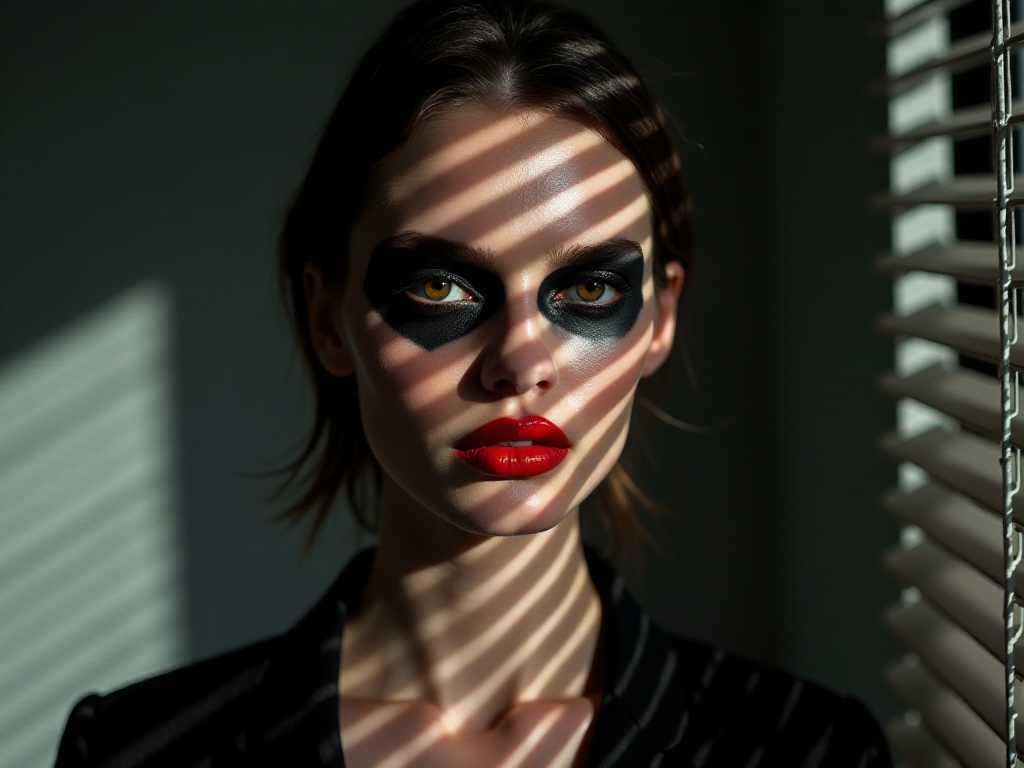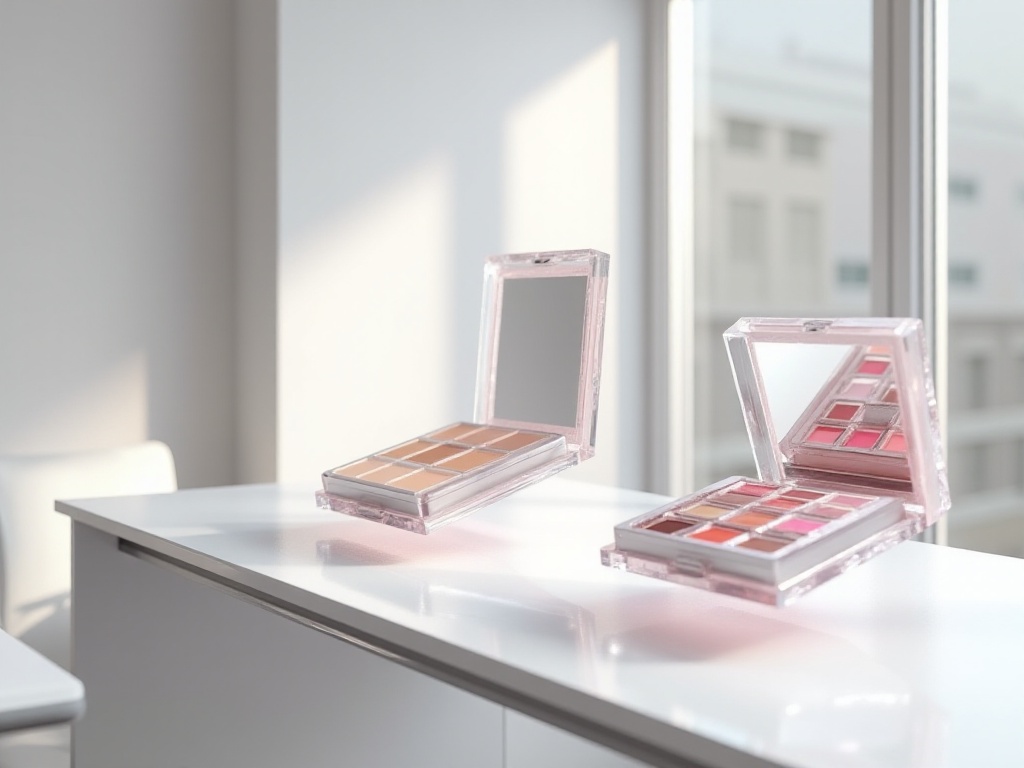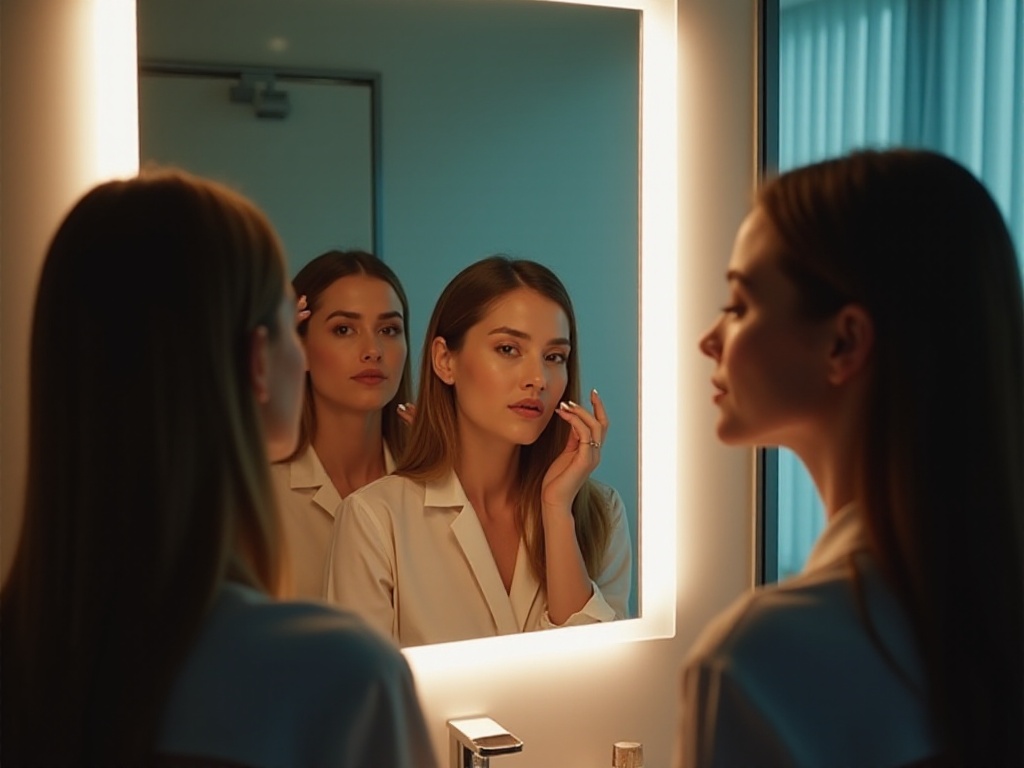Introduction
Hello everyone! I've recently received many messages from professionals asking about creating a polished and sophisticated office makeup look. To be honest, seeing so many of you concerned about workplace makeup makes me feel very connected to you, as I too started as someone who knew nothing about makeup and learned step by step. I remember when I first started working, I would spend nearly an hour doing my makeup every day, worried that it wasn't polished enough. Looking back now, I was so adorable! After years of workplace experience, I've finally developed a set of makeup tips suitable for the office environment, and today I want to share these practical experiences with you.
Foundation Base
Foundation is absolutely crucial for office makeup. After all, who doesn't want to look radiant in morning meetings and confident in front of clients? However, remember that office foundation makeup is all about finding the balance between "polished but not overdone." When I first started working, I always applied thick foundation, thinking it would cover all imperfections and look more perfect. Then one day, our department manager, a very elegant female executive, privately told me: "Zhang, your foundation is too thick, it makes you look tired. Try a more sheer foundation." That advice was truly eye-opening!
My personal experience is that texture is crucial when choosing foundation products. Many people now prefer foundations with ultra-high coverage, but under bright office lighting, they can look very artificial. Especially during meetings, heavy foundation not only looks fake but can make you appear unprofessional. I recommend choosing light, breathable foundations, focusing on "precise coverage" rather than "full-face application" when it comes to concealing.
Speaking of concealer, I've really made many mistakes. When I first started working, I used concealer almost like moisturizer to cover acne marks and dark circles. Not only did it not achieve the desired effect, but it made my face look artificial and prone to makeup breakdown. Later I discovered that rather than pursuing perfect, flawless foundation, it's better to focus on skincare. Good skin condition is the best foundation base!
For example, I once used a foundation with a very thick texture, and during an important meeting, it started flaking as soon as the air conditioning hit it - I wanted to disappear into the ground! That experience really left an impression on me because I was giving a presentation to clients when I noticed my foundation starting to slide off - it was like a nightmare. Later, I switched to a lighter foundation, and now I can attend three consecutive meetings without any makeup breakdown.
For foundation selection, I suggest focusing on these aspects:
First, the texture should be light. Whether it's liquid foundation or cushion foundation, choose products that completely blend into the skin when applied. I now particularly like water-based liquid foundations that are not only easy to blend but also look very natural.
Second, pay attention to coverage. Many people might think higher coverage is better, but that's not the case. In a workplace environment, we need makeup that makes us look healthy and energetic, not a perfect mask. So now I use targeted concealing - only covering areas that need it, achieving coverage while avoiding an artificial look.
Third, consider longevity. Office makeup needs to last all day. When choosing foundation products now, I always check their longevity reviews. I've found that long-lasting products often share common characteristics - they're usually lightweight and contain oil-control ingredients.
Finally, don't forget sun protection. Many people might overlook this, but sun protection is extremely important. Especially in an office environment where you're facing computers for long periods, without proper sun protection, you can easily develop dullness and dark spots. So I now choose foundation products with SPF, which both protects the skin and helps makeup last longer.

Eye Makeup Guide
The biggest misconception about office eye makeup is thinking that lighter is better. I used to think this way, but in photos, I always looked tired. Actually, properly done eye makeup can make you look more alert and convey a professional, confident image in meetings.
I remember at a department dinner, a colleague who rarely wore makeup suddenly appeared with elegant office eye makeup, and her whole presence changed instantly. From then on, I understood the importance of eye makeup. However, remember that office eye makeup needs to be balanced - not too heavy or bright.
Here's the key: office eye makeup is all about "matte finish" and "dimension." When choosing eyeshadow colors, start with light brown shades. I often use a slightly reddish light brown as a base, then blend a darker brown in the outer corner, making eyes look alive without being too dramatic.
Here are some eye makeup tips I'd like to share:
First, eyeshadow selection. Earth tones work best for office eye makeup, like light brown and milk tea colors. These colors aren't too bold and can nicely define eye shape. I now particularly like matte eyeshadows, as shimmer can look too dramatic under office lighting.
Second, eyeliner application. Many might think office makeup doesn't need eyeliner, but that's not true. Appropriate eyeliner can make eyes look more alert and define eye shape. However, keep office eyeliner thin, and preferably choose brown eyeliner for a more natural look.
Third, lash treatment. Many might think office makeup doesn't need to focus on lashes, but lash condition directly affects your overall appearance. I now always curl my lashes and apply waterproof mascara. This makes eyes look bigger and more alert without smudging from sweat or eye-rubbing.
Lastly, eyebrow grooming. Eyebrows are the soul of makeup, especially in a workplace setting. I suggest choosing natural brow shapes, not too thick or dark. The brow pencil color should be natural too, preferably one shade lighter than your hair color.
When doing eye makeup, I have another tip: pay attention to lighting. It's best to apply makeup in natural light to see the true effect. If possible, place a small lamp on your makeup table to simulate office lighting.
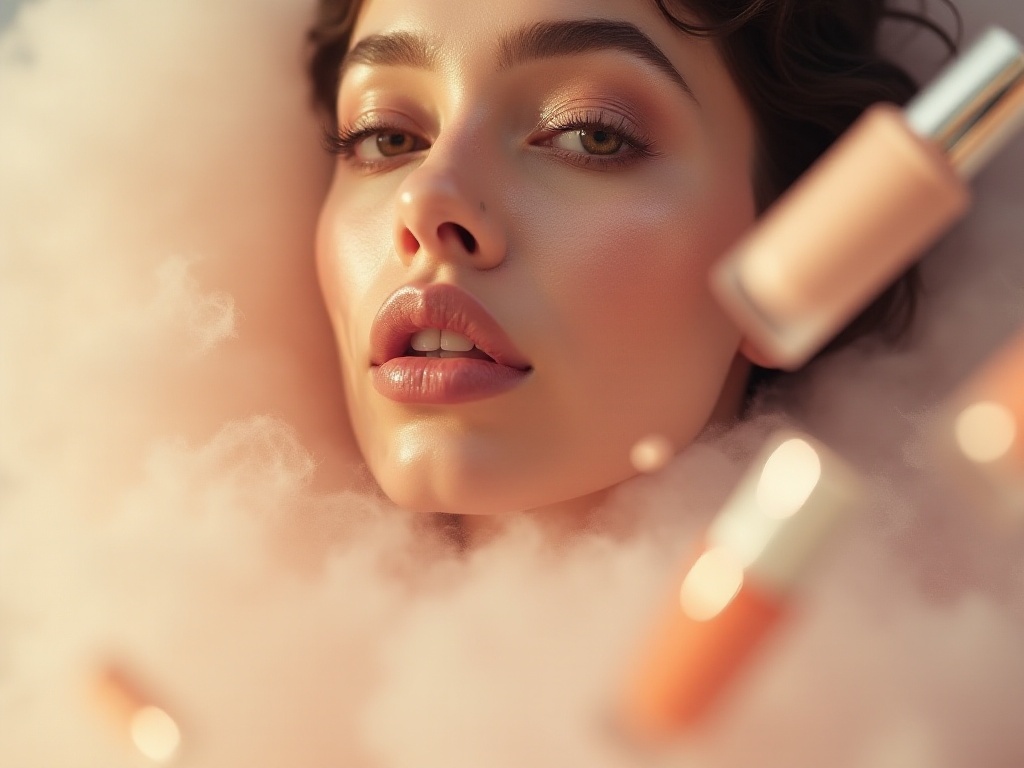
Lip Makeup Tips
Remember one principle: nude colors are king. But this doesn't mean giving up all color choices. For example, I particularly like nude lipsticks with slight coral-pink undertones, which enhance complexion without being too bold.
Speaking of lip makeup, I've had quite a few embarrassing moments. Once, I wore a bright red lipstick to a client meeting, and accidentally left marks on my water glass - I wanted to disappear! Since then, I've learned that office lip colors must be transfer-resistant.
Here are my lip makeup suggestions:
First, color selection. Nude and pink tones work best for office lip makeup. These colors enhance complexion without being too bold. I now particularly like coral-pink shades, as they look both gentle and energetic.
Second, texture selection. Longevity is crucial for office lip makeup. I recommend choosing moisturizing lipsticks that not only resist transfer but keep lips hydrated. While matte lipsticks photograph well, they might look too dry in the office.
Third, application technique. Many people apply lipstick heavily, but this can look unnatural. I now first apply a light layer with a lip brush, then pat gently with my finger for a more natural look.
Finally, lip care. Many might overlook this, but lip care is extremely important. Especially when working in air-conditioned environments, lips can easily become dry and flaky. So I always carry lip balm and reapply as needed.
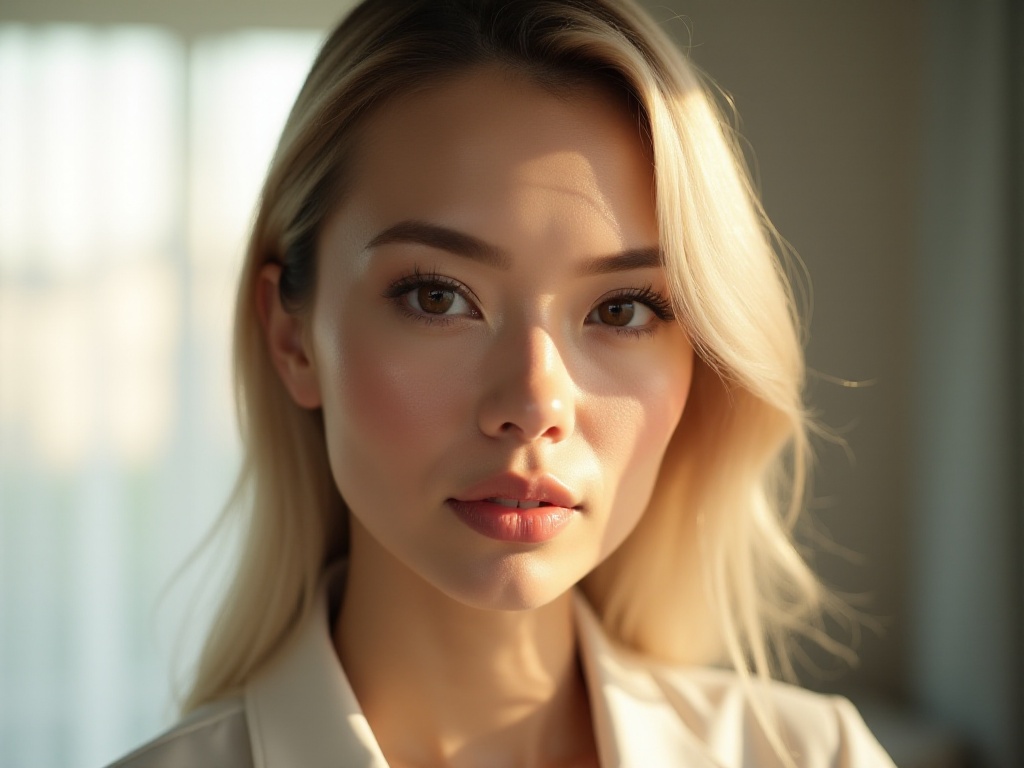
Longevity Secrets
Keeping morning makeup fresh all day isn't easy. Here are some practical tips:
First step is proper skincare before foundation. Many skip moisturizer when rushed in the morning, which is a big mistake. Dehydrated skin leads to makeup breakdown. My current skincare routine is: cleansing-toner-serum-moisturizer-sunscreen. Though it seems like many steps, with proper product amounts, it can be done quickly.
Second step is choosing the right setting products. I personally recommend setting sprays, especially those with hydrating properties, to keep makeup fresh without getting greasy. However, choose ones with very fine mist to avoid disturbing foundation.
Here are some setting technique tips:
First, spray application method. Many spray directly on their face, which can make makeup uneven. I now spray setting spray on a makeup brush first, then pat it on my face, making setting more even while avoiding foundation disruption.
Second, touch-up timing. Many wait until makeup is already breaking down before touching up, which is too late. I now touch up when I first notice oil, preventing makeup breakdown.
Third, touch-up method. Many directly use powder compacts, which can make makeup too thick. I now first use blotting paper to absorb excess oil, then lightly dust with loose powder, controlling oil without thickness.
Finally, maintain hydration. Many think oil control means making skin dry, but that's incorrect. Proper hydration actually helps makeup last longer. So I always carry a hydrating mist for occasional refreshing.
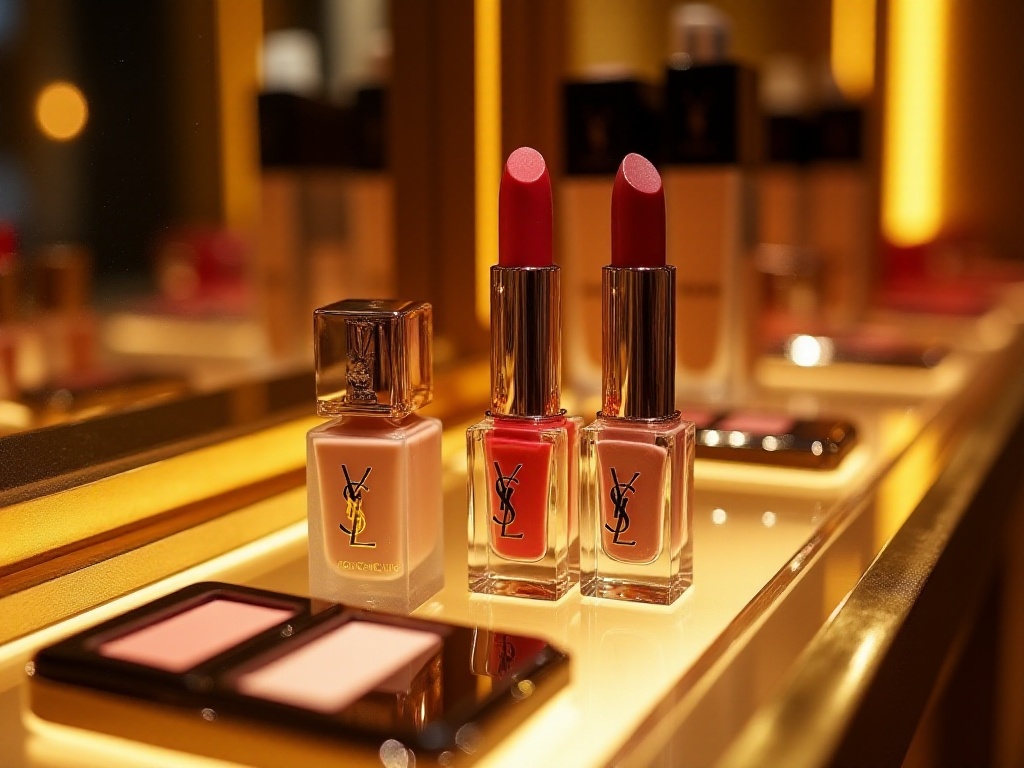
Product Recommendations
Among high-end brands, I find YSL's long-wearing foundation particularly suitable for office use, with impressive longevity and cushion quality. However, it's definitely not budget-friendly, so there are affordable alternatives. Speaking of this foundation, I've used it for several years, and it's never disappointed me, especially during important meetings or client visits.
Speaking of affordable brands, the beauty industry is really blooming lately. Many domestic brands offer amazing quality at just a third of luxury brand prices. I've stocked up on several domestic liquid foundations that perform just as well as high-end brands. Domestic brands now really understand young people's needs, with both packaging design and product texture matching young people's aesthetics.
Here are my product selection suggestions:
First, choose products based on your skin type. Different skin types suit different products - oily skin needs good oil control foundations, while dry skin needs moisturizing cushions.
Second, consider the usage occasion. Some products might perform well in daily life but not in office environments. So consider the usage environment when selecting products.
Third, do your research. There are many beauty reviews online, but verify their authenticity. I now look at multiple reviews and combine them with my actual needs when choosing products.
Finally, pay attention to expiration dates. Many stock up on multiple products, but remember cosmetics have expiration dates. Opened products often expire sooner, so purchase according to your usage frequency.
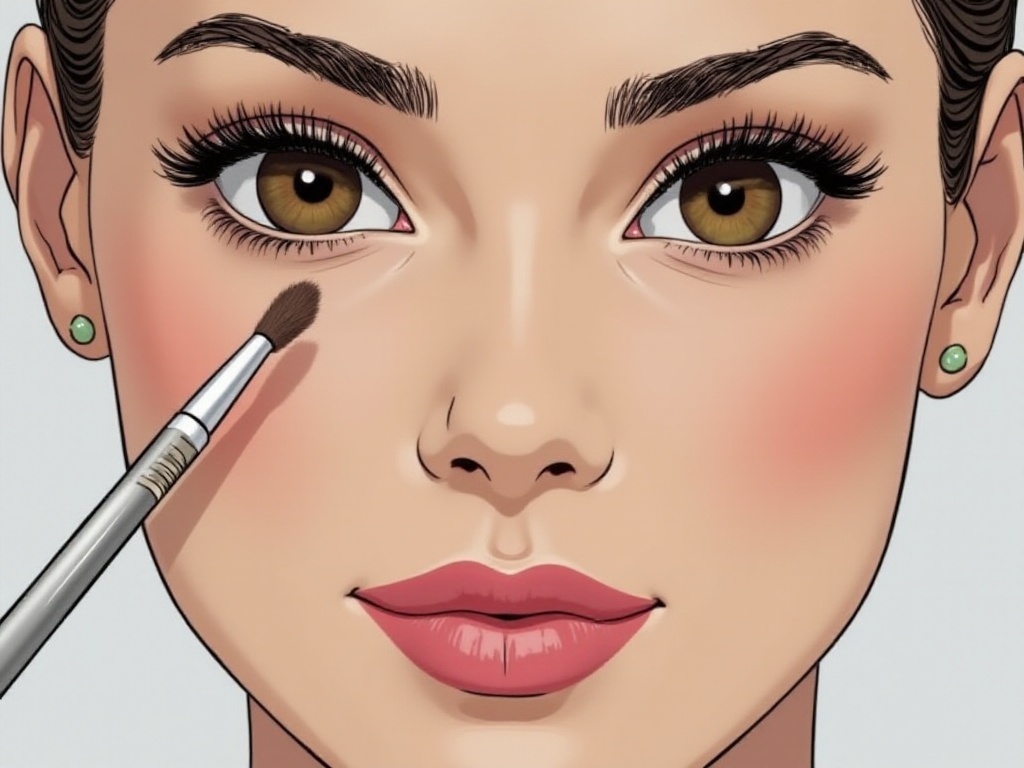
Final Thoughts
Ultimately, makeup is about building confidence. In the workplace, appropriate makeup not only boosts your spirit but leaves a professional impression on colleagues and clients. However, remember that no matter how good your makeup looks, without professional capabilities, it's just a pretty shell.
Remember, workplace makeup isn't about following trends, but finding your most suitable style. Isn't that right? Everyone has different skin types and face shapes, so don't blindly copy others' makeup - find what works best for you.
In my years of professional experience, I've truly realized the importance of makeup for a working professional. It not only makes you look more professional externally but more importantly brings confidence. When you're confident about your appearance, you can better showcase your professional abilities.
So here's a question: Do you pay attention to colleagues' makeup? Please share your workplace makeup experiences in the comments. Everyone has their unique experiences, and through exchange, we can learn more makeup techniques to present our best selves in the workplace.




